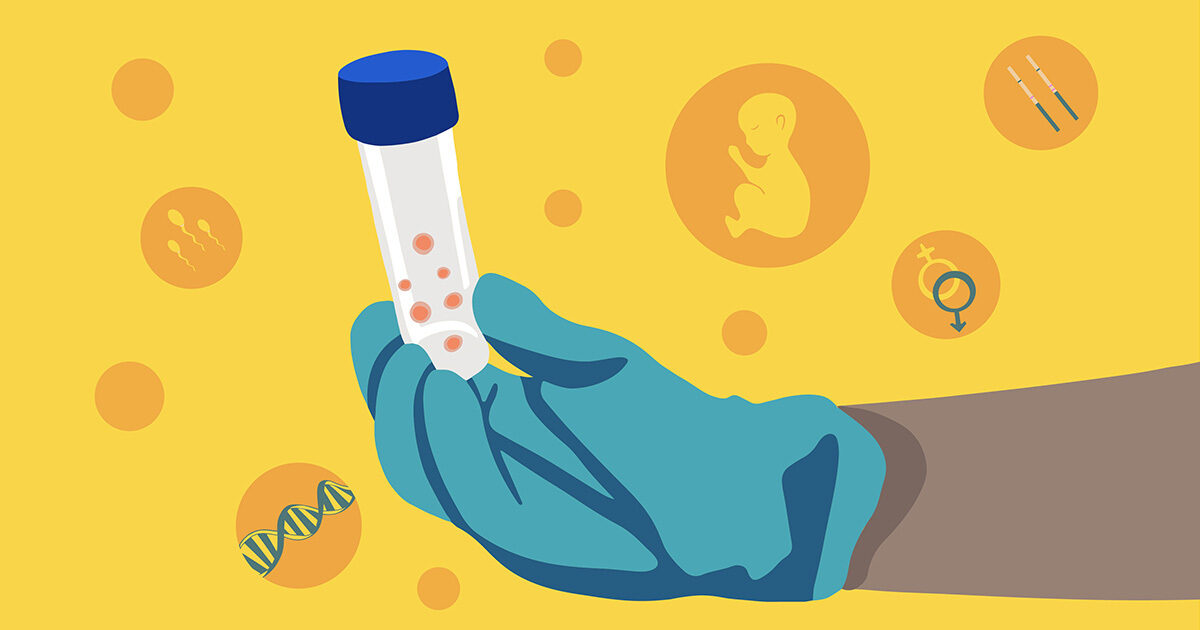Achieving a Successful Pregnancy Through Egg Freezing
UT Health Austin reproductive and infertility specialists share tips for preparing for egg freezing
Reviewed by: Sarah Felderhoff, MSN, APRN, and Winifred Mak, MD, PhD
Written by: Kaylee Fang

Egg freezing, also known as oocyte cryopreservation, is a fertility preservation technique that offers individuals the opportunity to extend their reproductive timeline by preserving their eggs at a younger age for potential future use. This process involves collecting, freezing, and storing the eggs and provides individuals with greater control over their reproductive choices, allowing them to pursue educational or career goals, explore relationships, or address medical concerns without the pressure of age-related fertility decline looming over them.
Explore answers to commonly asked questions about egg freezing.
<br>“Depending on your age when you freeze your eggs, the amount and quality of eggs will vary,” explains Winifred Mak, MD, PhD, a reproductive endocrinologist and infertility specialist who is a part of both UT Health Austin’s Reproductive Endocrinology and Infertility care team and UT Health Austin’s Cancer Fertility Preservation care team. “It is recommended that you freeze 10 eggs per desired live birth, because the efficiency is not as high as undergoing in vitro fertilization (IVF) with fresh eggs.”
“You will have a greater likelihood of achieving pregnancy by freezing your eggs during your mid-20s to 30s,” notes Dr. Mak. “Typically, 80% of the frozen eggs will survive the thawing process and around 4 embryos will develop within 5 days out of the 10 eggs you freeze. Those embryos have roughly a 40% chance of achieving a successful pregnancy. If you are over the age of 35, prepare to undergo more cycles for egg freezing with a lower chance of conception.”
Tips for Preparing for Egg Freezing
“Incorporating certain lifestyle changes can be a great first step in preparing for the egg freezing process or other fertility treatments, such as IVF,” encourages Sarah Felderhoff, MSN, APRN, an advanced practice registered nurse in Women’s Health, a clinical partnership between Ascension Seton and UT Health Austin. “Striving to be the healthiest version of yourself can help support you throughout this process.”
Try implementing these healthy habits:
- Avoid tobacco and drug use
- Limit alcohol intake
- Remain consistent with exercise
- Eat a variety of nutritious foods, including fruit, vegetables, and lean proteins
- Consider taking a prenatal vitamin
- Maintain a healthy weight
“Prenatal vitamins contain folic acid, which can prevent neural tube defects for the baby,” shares Felderhoff. “Be sure to discuss with your healthcare provider which prenatal vitamins to take before trying to conceive naturally or freezing your eggs.”
Including your partner can also influence your fertility preservation journey. If you plan to use your partner’s sperm for fertilization, encouraging them to adopt a healthy lifestyle can optimize outcomes. Sharing both the challenges and triumphs with your partner can alleviate burdens and enrich the overall experience.
Separating Myth From Fact
“There is no specific time limit for storing frozen eggs, which allows you the flexibility to preserve your eggs for as long as you desire,” reveals Felderhoff. “However, it’s essential to consider the financial aspect of egg storage, as there are annual storage fees. Most fertility clinics will have a financial advisor that you can meet with.”
“If you choose not to use the eggs,” continues Felderhoff, “you have the option to donate them to individuals in need, contribute them to scientific research, or opt for their disposal. Ultimately, the decision is guided by your preferences and aligning with what best suits your circumstances.”
“Another common misconception is the notion that freezing your eggs halts your biological clock, which has been portrayed by the media as a fashionable means of postponing or delaying childbearing,” adds Dr. Mak, “When embarking on your fertility preservation journey, it’s important to carefully consider all your options, as there is no guarantee that you’ll get pregnant from freezing your eggs. However, it does allow you to have a viable option in the future.”
An Emerging Approach to Fertility Preservation
Ovarian cortex freezing, also known as ovarian tissue cryopreservation, is a fertility preservation technique primarily utilized for individuals facing medical treatments that may impair their fertility, such as chemotherapy or radiation therapy for cancer.
“Ovarian tissue cryopreservation is typically used for those who are prepubertal or living with a cancer diagnosis and don’t have time to complete egg reservation,” explains Felderhoff. “During this procedure a portion of the outer layer of the ovary (the ovarian cortex), which contains thousands of immature eggs (oocytes), is removed. Then, the tissue is frozen and stored for later use.”
After the individual completes their medical treatment and is ready to conceive, the frozen ovarian tissue can be thawed and transplanted back into the body, typically onto the remaining ovary or in another suitable location. This allows the ovaries to resume hormone production and egg maturation, potentially restoring fertility.
“The tissue can be successfully stimulated or begin producing follicles or eggs in the future to achieve pregnancy naturally or through IVF,” says Dr. Mak. “This method has shown promising results in restoring fertility for cancer survivors and others facing fertility-threatening medical conditions, and it offers an option for preserving fertility when traditional methods, such as egg freezing, are not feasible or sufficient.”
For more information about UT Health Austin’s Reproductive Endocrinology and Infertility service or to request an appointment, call 1-833-UT-CARES (1-833-882-2737) or visit here.